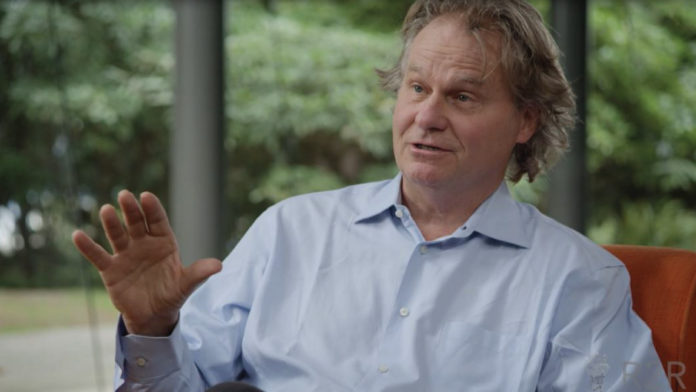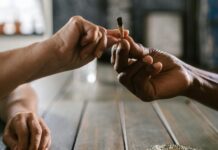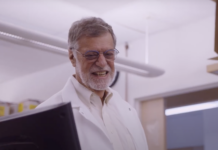Wade Davis is a Professor of Anthropology and the BC Leadership Chair in Cultures and Ecosystems at Risk at the University of British Columbia. We asked him everything from what he is reading to what advice he would give to young researchers in hopes of giving you a better understanding of one of the best minds in Canadian research.
What inspired you to become a scientist?
I really didn’t become a scientist. I went to University trying to study law and I was in the Museum of Ethnology at Harvard the day before you had to pick a major and I just became dazzled by these extraordinary dioramas of ancient civilizations. I walked out into the sun and I ran into a friend and I asked him what he was going to major in and he said, “Anthropology”, and I said, “What’s that?”, and he said, “You study Indians.”
And like Forrest Gump I said, “That’ll do.”
After two years I became tired of just reading about indigenous people and I was sitting in a café in front of the National Geographic map of the world and my left hand hit the Amazon. Had it hit Italy I might have become a Renaissance scholar but I decided to go the Amazon. There was only one man to see, Richard Evans Schultes, legendary plant explorer. And I walked into his office and told him I’d like to go to South America and study plants and two weeks later I was in the Amazon. That’s how I became an ethno-botanist.
How will your research make a difference in our lives?
The great lesson of anthropology is that every culture has something to say and each deserves to be heard. Genetics has proven that we’re all cut from the same genetic cloth and as a result, it means that every human population shares the same raw genius. Race has been exposed as an utter fiction. What this means therefore is that the other peoples of the world aren’t failed attempts at being you; they’re not failed attempts at being modern. Each culture is a unique answer to the fundamental question: What does it mean to be human and alive? That is the great lesson and revelation of anthropology.
What advice would you give young researchers?
I think that the most important challenge in a young person’s life is to find a way to become the architect of that life. Bitterness in old age invariably comes to those who look back on a life of decisions imposed upon them, whereas a contented life is the product of a trajectory in which, one may not feel that every decision was the right one, but at least every decision was owned by the protagonist and therefore there’s no room for regret or despair.
I always give all young people the same advice: to give their destiny time to find them, to be patient, to find a way to cultivate within themselves an inner compass such that, when they come to a crossroads in life, they will follow their inner path not that of anyone around them.
What do you read?
I read voraciously but in a kind of narrow spectrum usually in relationship to my work so I’m generally working within biography, history, non-fiction almost exclusively. For example, for my book, Into the Silence, I purchased and read over 600 books just for that one book to be written. My range of book subjects ranges dramatically. Right now, for example, I have 6 books under contract. So these 6 areas become the focus of what I read in the moment.
What’s on your iPod?
I’m working with Bob Weir, the lead singer of the Grateful Dead, on his memoir so I’ve been listening to a lot of Grateful Dead. These days I’m listening to an awful lot of music from the San Francisco scene in the era of the acid tests just to get a sense of the stuff. Things like Moby Grape, Quicksilver Messenger Service, Big Brother, Jefferson Airplane, all those classic San Francisco bands, simply because I’m trying to get my head into the space of the genesis of the Grateful Dead.
If you could choose any other profession, what would it be?
I’ve 100% been the architect of my own life. Obviously, like everybody else, there are talents that I don’t have that I’d like to be able to have. I’d love to be able to sing and produce music. But fundamentally I couldn’t imagine being anything but exactly what I am.
What do you like to do for fun?
My fun is my life and my life is my work. On the other hand my work is sailing on the Hokulea in the South Pacific or trekking through the Himalayas with Buddhist lamas or watching a voodoo ceremony in West Africa.
Want to learn more about Prof. Davis’ research? Check out his Orange Chair Interview on how culture and language connect us to the human legacy.








































